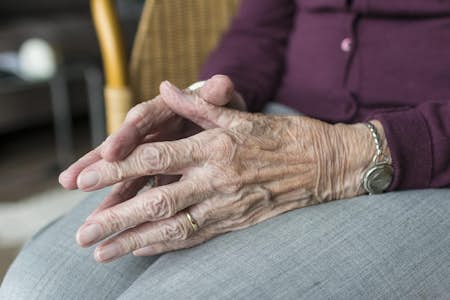Advance care planning is an important aspect of healthcare that many people overlook, but it can make a big difference in the quality of life for patients and their loved ones. This guide will walk you through what advance care planning involves, why it's so crucial, and provide guidance on how to create a plan for yourself or someone you care about.
What is advance care planning?
Advance care planning (ACP) is a general term used to describe the process and documentation of recording someone’s future wishes or requests in relation to their care. Advance care planning can be used to cover many situations, but it is typical for those considering end-of-life or palliative care. Advance care plans often apply to care settings such as hospitals or residential care homes.
There are three types of advance care planning documents:
- Advance statements or advance care plans: This is a written document detailing an individual’s wishes and preferences for future care and potential treatments. It is a statement that guides healthcare professionals such as GPs, physiotherapists, or community nurses who may have to make decisions on the person’s behalf if they become too unwell to tell them about their preferences. Advance statements are not legally binding but should be considered by healthcare professionals.
- Advance Directive, Advance Decision to Refuse Treatment (ADRT), or a Living Will: This legally binding document allows people to record their wishes to refuse specific treatment if they cannot make decisions for themselves. It is known by several different names and includes documents such as DNAR or DNACPR.
- Lasting Power of Attorney (LPA): This is a legally binding document that gives one or more named individuals (the attorney) the power to make decisions about healthcare and treatment on behalf of the named person (the donor). An example is an ageing parent giving their children power of attorney to manage their affairs if they get dementia and can no longer make decisions in relation to their affairs. It is important to note that there are two types of power of attorney in the UK: health and welfare and finance and financial affairs.
Whether you're looking for a personal alarm for yourself or something to put your mind at rest about a loved one's wellbeing, there's something for all needs in this fantastic range of caregiving and monitoring aids.
Who writes an advance care plan?
Anyone with the capacity can make their own decisions and write their advance care plan. Capacity is an important element of care planning as it ensures that the individual has the ability to make decisions for themselves. An advance care plan can be concise or very detailed.
An advance care plan can be written by the individual or with the support of a trusted person. It is always vital to ensure that the individual’s wishes are presented clearly and are in their best interests.
Once written, the advance care plan can be shared with healthcare teams and social care professionals such as GPs, nurses, and social workers. It is also good practice to keep a copy in a safe place at home and make any family or carers aware of it.
Who needs an advance care plan?
Anyone can have an advance care plan, but it is typically used by older people or those who have a serious illness. It is always worth considering the future and documenting a person’s wishes using the best type of advance care plan for their situation. Where there are other people involved, such as close family, carers, or spouses, advance care planning can be a shared decision.
What type of advance care planning is best for me?
This will depend greatly on many personal factors, such as:
- Your current financial situation
- Your personal preferences and priorities for your future health and healthcare requirements.
- The presence or probability of developing a life-limiting disease such as Alzheimer’s, dementia, or Multiple Sclerosis (MS).
- What other legal documents already exist, such as a will or power of attorney.
- Who you want to be involved in your care and the treatment options you do not want.
This list is a general overview of factors that should be considered.
When planning, seeking advice from third parties such as solicitors and healthcare professionals can be worthwhile. Whilst the decision-making process can be lengthy, taking the time to understand your options can help to ensure that you create a tailored plan suited to your needs.
What advance care plans are legally binding in UK law?
Generally, an advance care plan is not a legally binding document. However, there are legally binding documents that may be created during the advance care planning process, and these are:
- An Advance Decision to Refuse Treatment (ADRT) document recording a preference not to receive a specific type of treatment.
- A Lasting Power of Attorney (LPA) for health and social care.
- A Living Will.
Legally binding documents, like a Living Will or LPA, need to follow a specific process to ensure that they are legal. These requirements are set out by the Office of the Public Guardian. The GOV.UK website offers clear guidance on how a will or LPA must be legally binding. Advance decisions are considered legally binding where they comply with the Mental Capacity Act 2005.
What is an Advance Decision to Refuse Treatment (ADRT)?
An ADRT is a document that communicates your wishes to healthcare professionals to refuse specific medical procedures or treatments in specific situations.
The idea of an ADRT is to prevent unwanted medical treatments (such as CPR) where the quality of life is not in line with the individual’s standards, in the event that they cannot make a decision for themselves. An ADRT must be witnessed and signed by another person, including the individual making the ADRT.
A typical example is when an individual with an illness has received all of the possible treatments and does not want a feeding tube or fluids to extend their life. This could also include refusing antibiotics or invasive heart surgery where the quality of life after treatment is unlikely to be good.
It is important to note that an ADRT cannot be used to refuse some basic, dignifying elements of healthcare. This can include washing, bathing, or the use of painkillers to relieve pain but not treat a condition. This is to ensure that the individual is as comfortable and pain-free as possible. An ADRT can also not be used to avoid treatment of a mental disorder or condition if the individual is detained under the Mental Health Act 1983.
What is a Living Will?
A Living Will is another term used for ADRT or Advance Directive, and it follows the same procedure as an ADRT. To ensure that it is legal, it must be signed and witnessed by the person making the will and one witness.
What is A Do Not Attempt Cardiopulmonary Resuscitation (DNACPR)?
A DNACPR or DNAR is a document that lays out the request that an individual is not given cardiopulmonary resuscitation (CPR) if they have a cardiac arrest. This is when the heart stops beating, and the individual is at risk of dying if quick intervention is not given. CPR is the emergency treatment given to attempt to restart the heart and keep oxygen flowing to the vital organs.
A valid DNACPR means that healthcare staff will not attempt CPR if the individual is in cardiac arrest. This can mean that other treatments may be given if an existing advance directive does not specify refusing CPR.
A DNACPR is often used in cases where the individual has life-limiting health conditions such as cancer or dementia. This can be put in place for individuals who do not wish to receive life-extending treatment due to their personal wishes.
A healthcare professional, like a doctor or clinician, fills out a DNACPR form, which is then included in the person's medical records and shared with all relevant healthcare personnel. This ensures that everyone knows not to administer CPR.
What is a Lasting Power of Attorney (LPA)?
An LPA is a legal document that gives a trusted person control over an individual’s affairs (the donor) and the ability to make decisions on their behalf if they end up lacking the capacity to make decisions for themselves. There are two main types of LPA:
- Health and welfare: This only applies to decisions around care for the person named in the LPA.
- Financial: This only applies to decisions made around the finances and property of the individual.
The ‘donor’ is the person who wishes to appoint others to make decisions on their behalf. The person who is appointed to make decisions on behalf of the donor is the ‘attorney’.
Having multiple attorneys is an option, but it's crucial to consider the connection between the attorney and the donor and the attorney's stance on making decisions for the donor.
An LPA is only applicable when it has been correctly registered using the official forms. This process can take up to 20 weeks to complete. Once it has been registered, it becomes legally binding. Any changes, such as the donor or an attorney passing away or a change of address, need to be reported. This ensures that the document is up-to-date and legally binding.
When is a Lasting Power of Attorney needed?
An LPA may be needed when the individual could lose the capacity to make decisions around their finances and medical treatments, especially due to conditions such as dementia or brain damage.
There are other circumstances where an LPA may need to be considered:
- Cohabiting but unmarried partners who wish for their significant other to be their decision-maker and main contact.
- There are no living family members, and the individual wishes for a trusted friend to be their decision-maker.
- The individual has mental health conditions where their capacity can come and go, such as bipolar or schizophrenia.
- The forms and instructions for creating and registering an LPA can be found on the GOV. UK website.
If an individual does not have an LPA in place and is deemed not to have the capacity, then the Court of Protection pathway may be considered. The Court of Protection can make decisions on behalf of an individual who cannot make decisions for themselves, or they will appoint a deputy who can.
How to have a productive discussion around advance care planning
Talking about your wishes for an advance care plan may seem difficult, but it is a conversation worth having with your loved ones and any healthcare professionals who are involved. A good place to start can be with your GP or primary care provider. They may be able to offer advice or suggestions based on their professional experience.
Think about any scenarios that could happen in your life. This could be related to various health conditions that are present in your family, such as heart disease, cancer, or dementia. While you cannot account for every eventuality, you can come up with a plan for typical scenarios. These are some good starting points to consider:
- What would you like to happen at the end of your life?
- Who would you like to be involved and who would you like to make decisions on your behalf?
- What information do those looking after you need to know?
- Are there specific treatments you may want to refuse?
Being able to have open conversations around advance care planning is important, as family members or friends may approach you if they need support writing an advance care plan. It is difficult to talk about end-of-life care; however, it is a great position of trust and responsibility to hold. It is normal to expect that those involved in advance care planning may become emotional. It can be difficult to talk about, so keeping the sessions short or taking regular breaks can be helpful.
Getting organised to start advance care planning
There are some practical elements to consider once a decision has been reached on the type of advance care planning. It is important that physical copies of vital paperwork are easy to find and access. The following is a checklist you can start with:
- Birth certificate, passport, driving licence
- Marriage certificates, change of name documentation
- Mortgage deeds or rental agreements
- Bank account information
- Documentation of any investments, bonds, or pensions
- Copy of a will
- Contact information for any important friends or family
- Advance decision, directive, etc.
- Information on household expenditure or routine work such as window cleaning, pet sitting, etc.
Ensure that a nominated person can easily access your paperwork should your situation change.
Can I change my mind about advance care plans?
It is a good idea to review advance care plans regularly to check whether your situation has changed in any way. An advance care plan is an informal guidance document, so changes can be made easily, and the document can be updated.
However, legally binding care documents such as an LPA cannot be changed once they are registered. They will need to be cancelled, and a new one will need to be written. This could be costly as it involves solicitors, so taking your time when planning legally binding care documents is important.
Advance care planning is a difficult topic to address. Few people may want to consider the situations that can arise at the end of their life or think about life-changing conditions that could impact their quality of life. Spending time planning affairs and thinking about your care wishes can offer you and your loved ones peace of mind.
Image Credit: Matthias Zomer at Pexels












